We are pleased to announce that the details have been finalized for
the Permaculture Design Certificate Course in Malaysia in January, 2014.
Please read on for more information.
Take a look at our previous
PDC
REGISTER HERE
 DOWNLOAD POSTER
DOWNLOAD POSTER
The
Permaculture Design Course is a comprehensive and in-depth training
experience that equips Permaculture Designers with the foundation
necessary to design systems and sites using the unique Permaculture
methodology and to begin implementing Permaculture Design at any scale.
The Certificate is a also a prerequisite for a
Diploma in Permaculture Design,
offered through The Permaculture Institute. Credit for this course is
now accepted by a growing number of universities around the world.
Dates: 18th of January until 30th of January 2014
Classes will begin each day at 9:00 am and end at 5:30 pm with appropriate breaks for Prayer, lunch and refreshments.
REGISTER ONLINE:
Follow this Link
For more information: Contact us via email:

Location:
Hulu Langat, Selangor, Malaysia. Within a half hour drive of Kuala Lumpur.
Teacher:
 This PDC course will be taught by Rhamis Kent,
a consultant with formal training in mechanical engineering (University
of Delaware, B.S.M.E. '95) and permaculture-based regenerative whole
systems design. This PDC course will be taught by Rhamis Kent,
a consultant with formal training in mechanical engineering (University
of Delaware, B.S.M.E. '95) and permaculture-based regenerative whole
systems design. |
| Rhamis Kent's
accomplishments include lecturing at Schumacher College about the
application of Permaculture in post-industrial Detroit, consulting with a
delegation of Somali expatriates initiating ecological restoration and
education work throughout Somalia, as well as teaching numerous
Permaculture Design courses around the world. |
Course Fee:
RM 2700 (Aprox. $ 850 USD) Non-Refundable Deposit of RM 700 (Aprox. $230 USD) must be made by 17th January 2014 to guarantee a place in the course.
Early Bird Fee of RM 2200 (Aprox. $690 USD) for those who submit the deposit of RM 700 on or before November 15, 2013
Full
Payment must be made before the first day of class. Payment is accepted
in Malaysian Ringgit or U.S. Dollars or British Pounds. For payments in
cash, the exchange rate will be calculated at the time of payment.
We also plan to accept Gold Dinars as a form of payment. Please contact for more details regarding this method of payment.
Please inquire about scholarships that may be available.
Accommodations:
On-Site Accommodations are included in course fee.
Food:
Food
and refreshments are provided for all students and is included in the
course fee. The hosts serve halal food. Vegetarian options are also
available upon request.
Additional Information:
Our goal at Murujan Permaculture Design is to create a safe learning space for
all
that takes into consideration the cultural sensitivities of Muslims.
The course is hosted at a venue nearby an intentional community with
traditional Muslim values and the hosts therefore provide excellent
hospitality but also deserve a respect of their values by guests. The
courses is open to anyone and everyone regardless of religion, race or
gender, etc., and all are encouraged to join. The atmosphere will be
conducive to conservative and traditional Muslim values and etiquette.
The
course is therefore especially suited for those who would like to work
in areas around the world that are inhabited by Muslims where many new
and exciting Permaculture projects are springing up.
General Guidelines include:
- Open and receptive attitude toward cross cultural communication
- Willingness to ask questions whenever necessary
- Conservative attire is recommended
- Respecting cultural gender relations
- Sobriety at all times during the PDC course
- Respect for elders, religious traditions and practice, and community leaders
-No musical instruments or music played out loud
-No Alcohol is permitted on premises
-No illicit drugs are permitted on premises
For men this would include:
- Wearing long shorts at least to the knee
- Wearing shirts at all times
- Not touching or shaking hands of Muslim women
- Not displaying overly intimate affection in public with wife or partner
For ladies this would include:
- Not touching or shaking hands of Muslim men
- Long skirts or pants
- Not displaying overly intimate affection in public with husband or partner
THE COURSE
Who is this course for?
The
Permaculture Design Certificate Course is a comprehensive educational
experience that teaches how a superior design methodology applicable to
all human systems.
Therefore this course is useful for anyone who
cares about the quality of the food they eat, the air they breathe and
the water they drink.
Some examples of those who will find the course useful:
Architects who want to learn how to design buildings that are helpful to humanity.
Engineers who want to design technology that causes more good than harm.
City Planners who want to design and re-engineer cities to be more sustainable and healthy environments for people.
Business Owners who want to run their business in a more sustainable, ethical and profitable way.
Students who still don't know what they want to do in life.
Fathers and Mothers who want to establish a secure and productive home
life for their family and want to learn better ways to raise their
children in a more healthy and wholesome way.
Activists and Aid workers who want to make a real and lasting difference.
People in the financial industry who want to enable truly free exchange
and real productivity through design of systems that eschew fractional
reserve, representative money and legalized interest.
The Permaculture Design Certificate (PDC) course is an
internationally-recognized, 72-hour course resulting in a Permaculture Design Certificate. It provides an introduction to Permaculture design as set forth by movement founder Bill Mollison.
To date, thousands of Permaculture designers worldwide have been
certified through this course, and now comprise a global network of
educators, ecological activists who influence major corporations,
individuals creating new business alternatives and groups of committed
people working together to change the way we view and design into our
landscapes.
The course covers
sustainable living systems for a wide
variety of landscapes and climates.
It includes the application of Permaculture principles to food
production, home design, construction, energy conservation and
generation, and explores alternative economic structures and legal
strategies supporting Permaculture solutions.
The Curriculum is Based on all Subjects in:
PERMACULTURE: A Designers’' Manual by Bill Mollison. Students are invited to bring details of their own sites or potential sites to consider during the course.
Topics covered include:
• Theory and principles of Permaculture
• Methods of design
• Understanding patterns in nature
• Water harvesting and management
• Drought-proofing
• Trees & their energy transactions
• Eco-friendly house placement and design
• Energy efficient architecture
• Energy conservation techniques for cold climates
• Earthworks & their use in earth repair
• Soils
• Soil rehabilitation and erosion control
• Organic food production
• Livestock
• Aquaculture
• Ecological pest control
• Humid tropics
• The temperate climates
• Humid cool climates
• Dry lands
• Strategies for urban and rural settings
• Recycling and waste management
• Right livelihood
• Catastrophe preparedness and prevention
• Money and finance
• Ethical investment
• Bio-regional organization
• Legal strategies and trusts
• Effective working groups
• Effective aid
To learn more, we suggest watching the following video clip:
Through the Eyes of Permaculture
The
course will be conducted in the internationally accepted manner. The 72
hours of course work required to receive a Permaculture Design
Certificate will be covered over a 13-day period. All students are
required to be present for the full two weeks if they wish to receive
the certificate.
DOWNLOAD POSTER
For more information: Contact us via email:


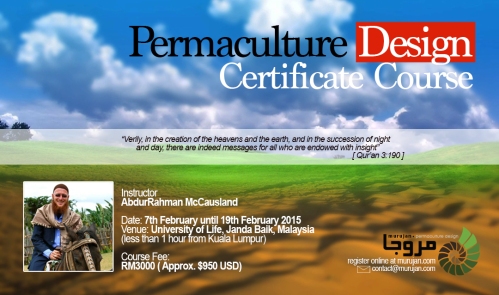
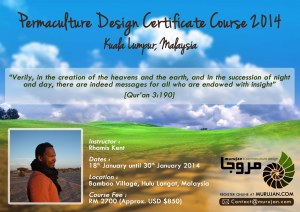

























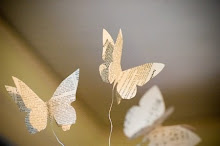
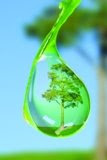

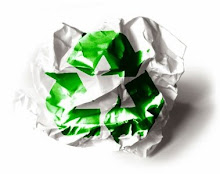




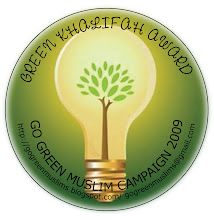.jpg)
